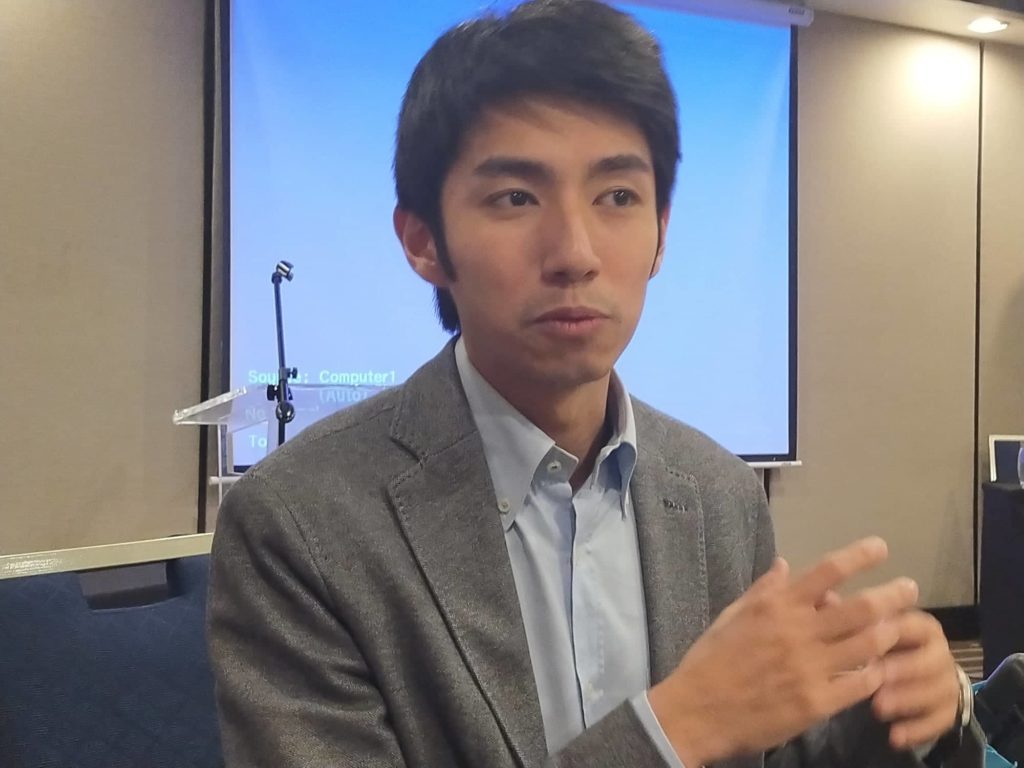Refillable aluminum LPG canister now available in Cebu

Matthew Par, assistant vice president for brand and marketing of Pascal Resources Energy Inc., says their product, Gaz Lite, is a safer and affordable alternative to illegally-refilled butane canisters. | Irene R Sino Cruz
CEBU CITY — In a bid to cut into the market for illegally-refilled butane canister in Cebu, Pascal Resources Energy Inc. (PREI) launched its 230-gram refillable aluminum liquefied petroleum gas (LPG) canister.
PREI created Gaz Lite, the first and only government-certified and approved refillable LPG canister made of aluminum.
On Tuesday, the company introduced to Cebu the 230-gram Gaz Lite Mate, a smaller version of the 330-gram Gaz Lite.
Matthew Par, PREI assistant vice president for brand and marketing, said they had recognized Cebu as a ready market for their products since many people here had been using illegally-refilled canisters.
“As the Department of Energy has warned, butane canisters are for single-user only and should not be refilled with LPG,” said Par.
He said that Gaz Lite would offer a safer, cost efficient and green solution to using traditional fuels.
Markets
PREI had identified Central and Western Visayas as priority markets for increased use of cleaner and safer fuel for cooking, Par said.
These two regions have posted the highest usage of traditional fuels like kerosene, wood and charcoal. These not only deplete natural resources but also cause potential health risks.
“Gaz Lite started as a corporate social responsibility (CSR) project of PR Gas to address the energy needs of the marginalized sector and make LPG more accessible to the sector,” Par said.
“Gaz Lite is about four or five years old. We were incubated under a different company. That’s where we developed our R&D on how we could basically sachet the LPG and make it more affordable,” he added.
Par also identified those using illegally-refilled butane canisters as among their potential customers.
Despite repeated warnings from the Department of Energy, the sale of LPG-refilled butane canisters continues in Cebu and other areas in the Visayas.
Gaz Lite would provide a viable alternative for consumers who still use butane canisters refilled with LPG.
“We are the safer choice for this market,” said Par.
Quality, bottled soft drinks concept
He said Gaz Lite had been conferred the Philippine standard mark from the Bureau of Philippine Standards of the Department of Trade and Industry.
According to Par, consumers using their products would be assured that the refilled canisters would have the correct content.
Also, he noted that they undertook testing of canisters during the refilling to check for leaks.
Par said their products would be readily available since they would be distributing these through sari-sari or convenience stores as well as different retail outlets, just like bottled soft drinks.
He explained that the marketing concept would be similar to that of soft drinks in which crates containing 24 refilled canisters would be delivered to retailers who would sell their these in exchange for the empty canisters.
The company has a regional distributing partner in Cebu who will be the one to supply the requirements on the province.
He also noted that they felt confident that they could meet a strong demand for Gaz Lite because their refilling facility, located in Lubao, Pampanga was under-utilized.
While the facility has a monthly capacity of three million canisters, their present production only reached around 150,000./dbs
Disclaimer: The comments uploaded on this site do not necessarily represent or reflect the views of management and owner of Cebudailynews. We reserve the right to exclude comments that we deem to be inconsistent with our editorial standards.
